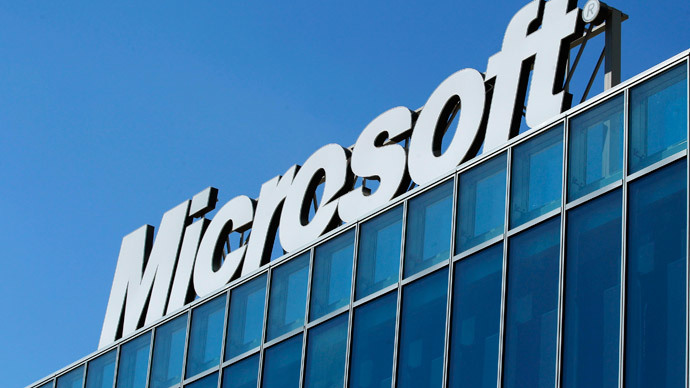Computer security experts say they have found a new flaw in Microsoft Windows operating system. The weakness, which has been named ‘Redirect to SMB,’ potentially allows hackers to steal sensitive information from hundreds of millions of PCs.
The discovery was made by the security firm Cylance, who said that any Windows system could be infiltrated, while there were at least 31 companies, including Adobe, Apple and Oracle, which can be exploited using this vulnerability.
Launched an Redirect to SMB attack on my home network from a Nexus 7 running NetHunter and my Python scripts. pic.twitter.com/eEwms62T9T
— Brian Wallace (@botnet_hunter) April 13, 2015
“’Redirect to SMB’ is a way for attackers to steal valuable user credentials by hijacking communications with legitimate web servers via man-in-the-middle attacks, then sending them to malicious SMB (server message block) servers that force them to spit out the victim’s username, domain and hashed password,” Cylance’s Brian Wallace stated in a blog on the company’s website.
Cylance said that if a hacker is able to get a Windows user to click on a bad link, which could be on an email or a website, it would be easy to create a cyberattack. The hacker would thus be able to hijack communications and access sensitive information.

Microsoft did acknowledge that there could be a problem, but mentioned it had been vastly exaggerated by Cylance.
“Several factors would need to converge for a ‘man-in-the-middle’ cyberattack to occur. Our guidance was updated in a Security Research and Defense blog in 2009, to help address potential threats of this nature," said Microsoft in an emailed statement, Reuters reports. “There are also features in Windows, such as Extended Protection for Authentication, which enhances existing defenses for handling network connection credentials.”
VU#672268: Microsoft Windows NTLM automatically authenticates via SMB when following a file:// URL: Software r... http://t.co/mIkfMZZilO
— US-CERT (@USCERT_gov) April 13, 2015
Meanwhile, the CERT unit of the Software Engineering Institute at Carnegie Mellon University, which is funded by the US government, said they issued a warning on Monday. The organization is responsible for tracking computer bugs and security issues that have popped up on the internet.
A similar flaw in Microsoft’s software was found in the 1990s. This allowed hackers to trick Windows into signing on to a browser, which they controlled. Microsoft never managed to resolve the issue, which was flagged up by Aaron Spangler in 1997.

